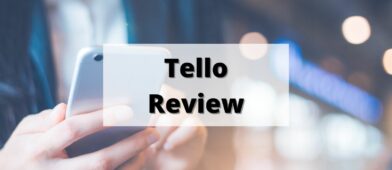Do you ever wonder just how many bank accounts you should have? Having too many bank accounts can cause confusion and extra work as you try to organize your money.
Having too few bank accounts can also lead to confusion as well when you work to meet your financial goals while paying the bills. Keeping all of your money lumped into just one account can make it tough to ensure designated funds stay where they belong.
Table of Contents
- Here are Two Types of Bank Accounts Everyone Should Have
- Other Types of Bank Accounts You Might Need
- Sinking Fund
- Reserve Spending Account
- Personal Checking/Savings for Each Partner
- Business Checking Account
- Business Savings Account
- Custodial Accounts
- Money Market Accounts
- Bank CDs
- Beware of Too Many Bank Accounts
- Summary
Here are Two Types of Bank Accounts Everyone Should Have
There are two types of bank accounts every person should have, almost without exception. They are basic accounts that will help you keep your money somewhat organized and prepare you for the financial ups and downs of life.
Here’s a summary of each type of account and what you should use them for.
Main Checking Account
Every person should have a main checking account. This is the account that welcomes your direct deposit or other payroll monies from working.
It’s also the account you’ll likely use to pay most of your bills. You’ll want to keep a bit of extra cash in your checking account to cover cash flow problems or accounting errors, but most of the money in your checking account will get used to cover expenses.
When searching for a bank to house your main checking account, you’ve got several options no matter what your bank history is. Here’s our list of the best checking accounts.
Even if you’ve got a damaged history when it comes to checking account management, you can find a checking account for those with bad credit.
Main Savings Account
You’ll also want to have a main savings account. This account’s primary purpose should be that of an emergency fund. Your emergency savings account funds should be used to cover a true unexpected financial emergency, like that of an unexpected job loss.
When considering your ideal emergency fund balance there are a few factors that can help you determine the answer to that question:
- How many months of expenses do I want my emergency fund to cover?
- How secure are my sources of income?
- What other factors could affect my ability to pay the bills?
Many experts say that three to six months’ of expenses is typically a sufficient emergency fund balance. However, your personal situation could affect whether that statement is true for your individual situation.
For instance, if you’re the sole breadwinner in your family you may want to have more money in your emergency fund. The same holds true if your job is unstable; for instance if the company you work for is on shaky financial ground.
Sole proprietors and small business owners should also consider an emergency fund with a healthier balance, say, 12 months’ worth of expenses.
Those with chronic medical issues or the uber-planners may also feel more comfortable with an emergency fund that has a higher balance.
If your emergency fund isn’t as healthy as you’d like, consider treating it like a bill and setting up regular auto-transfers into the account to ensure that the balance is growing.
And think about putting the money into one of the best high-yield savings accounts to earn maximum interest on your efforts.
Next, let’s talk about other types of bank accounts you might want to consider having.
Other Types of Bank Accounts You Might Need
These other types of bank accounts, although not necessarily a must, can be beneficial to help with financial organization as a whole. Read on to see if one or more might benefit you.
Sinking Fund
A Sinking Fund is an individual savings account that targets specific financial goals that are separate from your emergency savings funds.
You can open a Sinking Fund account for goals such as:
- A down payment for a house
- Your next vehicle purchase
- Your next vacation
- A home repair fund
Or any other savings goals you may have. You may want to open several Sinking Fund savings accounts and have one for each goal.
However, if managing several Sinking Funds sounds like too much work, see our section below on having too many bank accounts for a worthwhile option to consider.
Reserve Spending Account
The Reserve Spending account can function as a checking or a savings account. The purpose of this account would be to cover quarterly, semi-annual, or annual expenses.
For example, you could use this fund to cover auto or homeowners insurance. Or you could use it to cover propane expenses if you live in a rural area.
Other purposes for your Reserve Spending account could be birthday and holiday gifts, vet bills for your pets, or clothing purchases.
You decide which expenses fit this account and contribute to it as necessary to cover irregular expenses.
Personal Checking/Savings for Each Partner
Some relationships function better when each partner/spouse has their own checking and savings account.
In fact, you could have joint accounts for paying the bills and for emergency savings, yet still have individual checking accounts for “fun money” spending.
Some couples designate a specific dollar amount each month for each partner’s fun money spending. Working your budget in this way can help avoid disagreements about who is spending extra money on casual expenses.
You and your partner can hold your budgeted fun money in cash, or transfer it each month into individual checking accounts for each partner.
Business Checking Account
If you are self-employed or have a side hustle business, it’s a smart move to funnel the income and expenses from the business through a separate Business Checking account.
When you co-mingle your business or side hustle income with other non-business funds, tax time can be a bear.
Opening a separate Business Checking account will ensure you have your financials in order come tax time. Shop around for the best business checking accounts to find one that fits your needs.
Business Savings Account
Along that line, having a Business Savings account if you’re a business owner can be a good idea as well.
You can use your Business Savings account to set aside money to pay taxes on your business income. Or use it as a savings vehicle for later expansion or upgrades to your business.
As with Business Checking accounts, you should be able to find free or affordable Business Savings accounts at the bank that holds your Business Checking account or at other financial institutions.
Custodial Accounts
Many parents choose to open Custodial Savings accounts for their children. A Custodial Savings account is in your child’s name but has a parent or other adult listed as the custodian for the account.
Custodial accounts are most often used as a savings or investment vehicle on behalf of a child to cover future expenses such as college.
You can open a Custodial Savings account at a local bank, or a Custodial Brokerage account with an investment firm for investment purposes.
Money Market Accounts
A Money Market account is an account that functions primarily as a savings account. However, Money Market accounts typically have other features that make them attractive.
Money Market accounts usually pay a higher interest rate than a standard savings account. However, they often come with check writing and debit card privileges.
Note that Money Market accounts usually have restrictions on withdrawals and are not to be used as a standard checking account.
Here are the best money market account rates.
Bank CDs
Bank CDs can also work well for some people. Although the money in a CD is usually tied up for several months or years, it also often earns a higher rate of interest than a typical savings account.
And banks often run CD specials with even higher rates of interest. It’s important to note that if you store your money in a bank CD, you may get penalized if you withdraw the money early.
Check with your bank for details on those penalties.
Beware of Too Many Bank Accounts
Now that we’ve covered the must haves and the might haves for bank accounts, I have to say that it is possible to have too many bank accounts.
If you’re finding it tough to manage multiple bank accounts, consider these suggestions.
Use One Sinking Fund for Multiple Savings Goals
If you’ve got multiple savings goals and are finding it tough to manage sinking fund accounts for each one, consider compiling all of the cash into one sinking fund account.
The key to success here is to have a working spreadsheet to help you keep track of where the money in the account is designated to go.
For example, you might have one sinking fund account with a balance of $10,000. However, your spreadsheet will tell you that the money has several designated uses:
- New Car Fund: $5,000
- Vacation Fund: $2,000
- New Furniture Fund: $1,500
- Get A Puppy Fund: $500
- Theater System Fund: $1,000
Total Sinking Fund Balance: $10,000
Managing your sinking fund goals in this way may be easier for you if you’re having trouble keeping track of several different sinking fund bank accounts.
And here’s another suggestion.
Use Different Banks to Help Keep Track
You may find it easier to manage multiple bank accounts if you have them spread out at various banks.
As an example, your emergency fund is at the local credit union, your new car fund is at an online bank that pays high interest, and your vacation fund is at the bank next to your work.
This type of compartmentalization can be helpful, especially if you find you often dip into your savings for non-emergencies. Having your savings out of sight will hopefully also put it out of mind.
Summary
There’s no generalized right or wrong answer to the question of how many bank accounts you should have.
Although everyone should work to have a main checking account and an emergency savings account, the right choice as to which other accounts you have is completely up to you.
Take your personal preferences, your financial goals, and your organizational needs into consideration as you choose your path to financial wellness.
Then open the number and type of bank accounts that best fits your financial goals and organizational needs.
There’s a great solution for every situation! How many bank accounts do you have?



